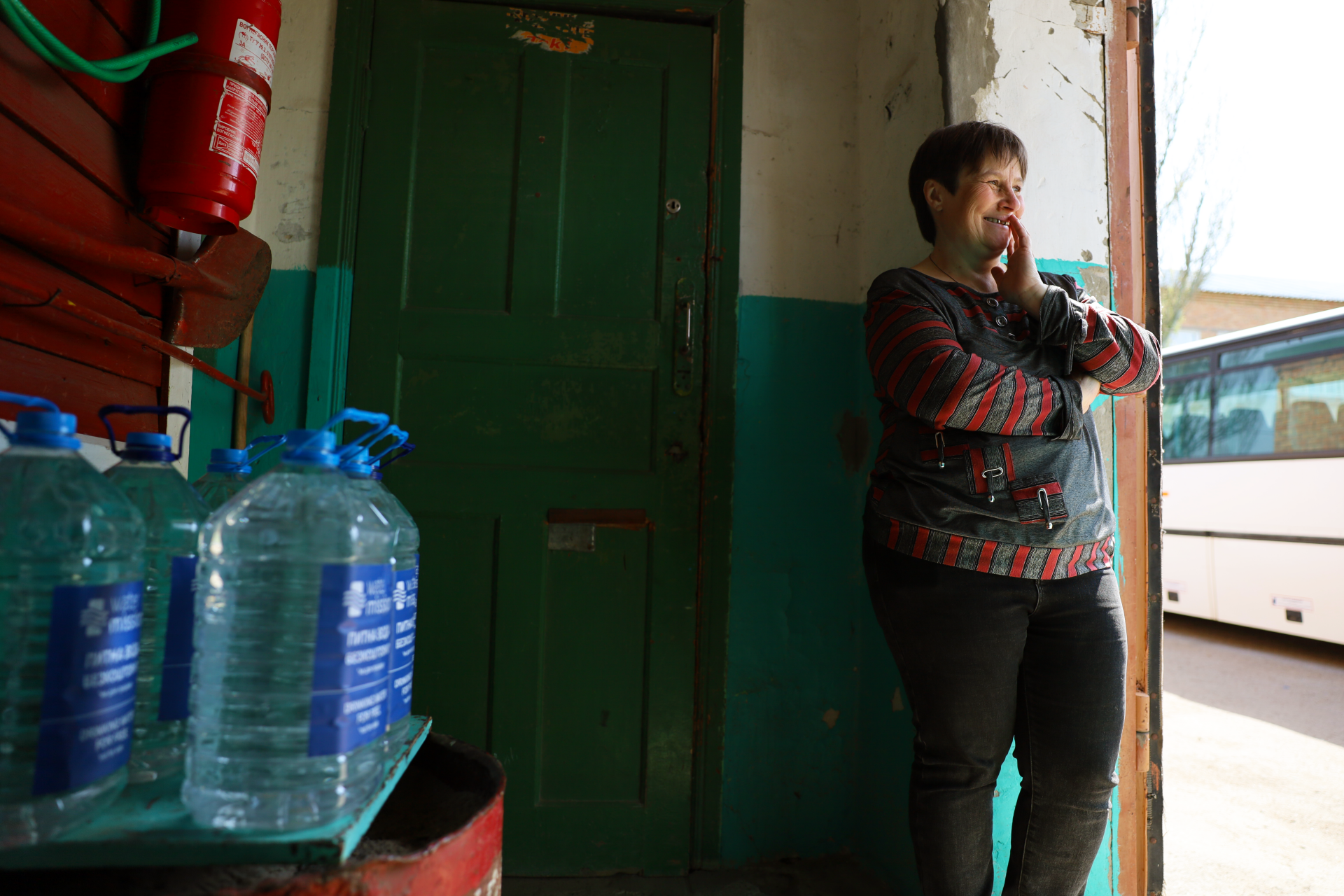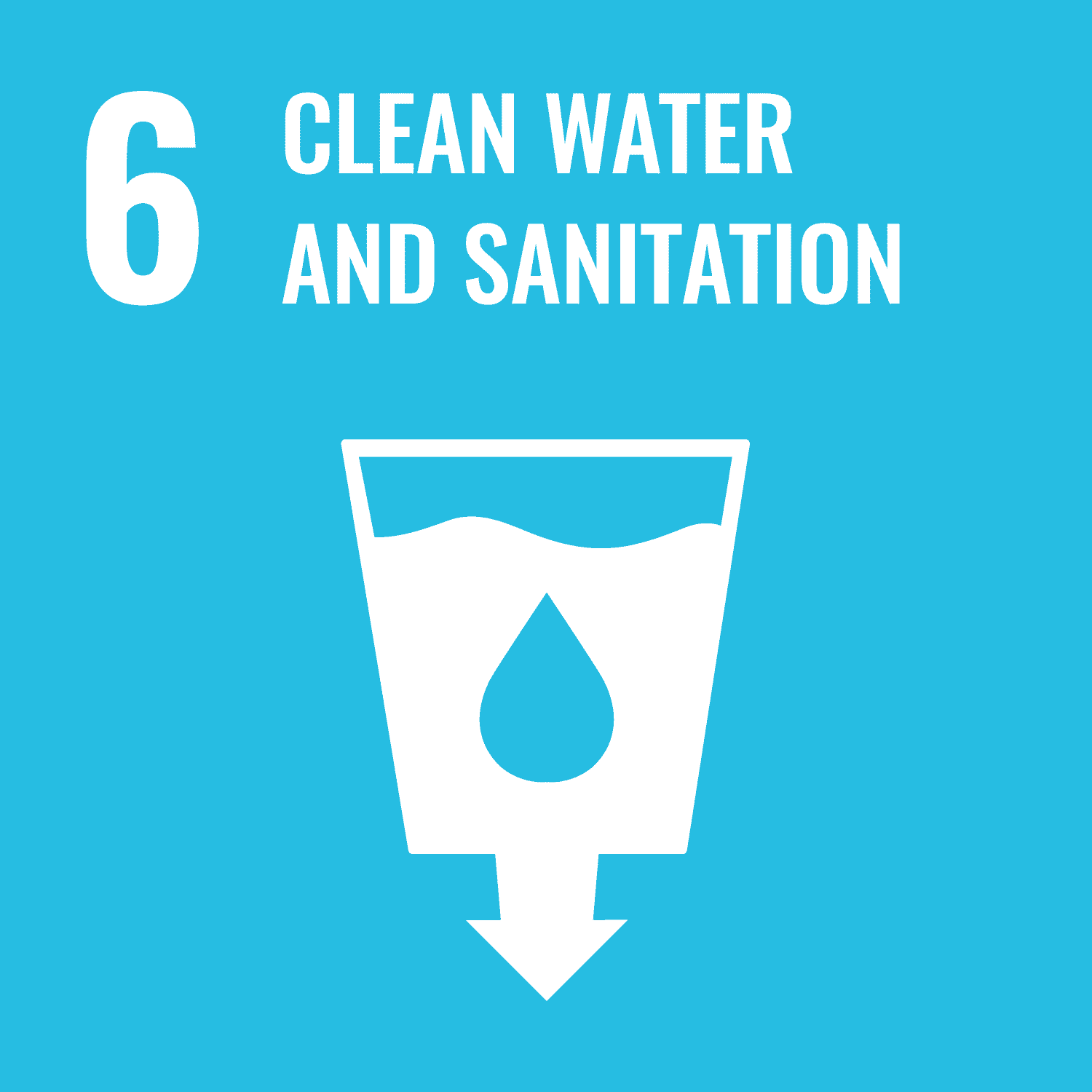[ Water, Sanitation and Hygiene ]
16 / 09 / 2024
Dealing With Water Challenges in Eastern Ukraine
Communications Officer at the Embassy of Switzerland in Ukraine
By Alisa Kyrpychova
Fifty-two-year-old Olena Kulibaba operates a water treatment unit in the small village of Nastasivka in Dnipropetrovsk Region, Ukraine, only 30 kilometers from the frontline. All her life she worked as a cleaner at a local school. The school has been closed for more than two years. Without a proper shelter to hide in during air raids and shelling, it will not open its doors to the pupils. Instead, Olena volunteered to take care of the water treatment unit, installed with the support of Swiss Humanitarian Aid.
“We have technical running water, but it is bad, smelly, yellowish, and scary. We can use it only for cleaning and washing. This unit provides drinking water to the entire community. People from the neighbouring villages even come,” said Olena.
We have technical running water, but it is bad, smelly, yellowish, and scary.
Photo: Alisa Kyrpychova/Embassy of Switzerland in Ukraine
Olena is operating the water treatment unit in an unused school’s premises.
Photo: Alisa Kyrpychova/Embassy of Switzerland in Ukraine
People can collect safe water using taps, installed outdoors.
Until last year, the village of Nastasivka never had such problems. The water was supplied from the Kakhovka reservoir. But after the destruction of the hydroelectric power plant in the summer 2023, the village remained cut off from the water supply. Water has become too precious a commodity now to be wasted.
Already in the fall last year, Swiss Humanitarian Aid, through its implementing partner Water Mission, drilled a 60-meter borehole and installed a water treatment unit in one of the local school's unused premises. Olena took courses on working with the installation and began to manage it herself. The unit is located indoors and there are taps on the street where people can collect drinking water.
“The water treatment unit releases 7-8 cubic meters of water every day. But with the onset of the warm season water consumption has been increasing,” explained Olena.
The water treatment unit releases 7-8 cubic meters of water every day.
This targeted intervention is a part of the bigger efforts of Swiss Humanitarian Aid to provide people in eastern Ukraine with uninterrupted access to safe water. Water and wastewater systems in the country are facing continuous damage from shelling and blackouts which harm pumps and other key equipment. Another challenge is aging equipment that has not been upgraded for several decades.
Eventually, every city and village affected by the hostilities often requires its own solutions to deal with acute water needs, varying from drilling new wells, delivering water trucks and laying water pipes to introducing complex and environmentally-friendly solutions.
In Kramatorsk, the electrical equipment donated by Swiss Humanitarian Aid is ensuring the uninterrupted work of the local water utility company, which supplies water to the local people, including during blackouts. In Kharkiv, the Swiss-provided biosorbents are used to neutralise the oil stains that appear on the surface of the rivers. And in the village of Nastasivka, Swiss Humanitarian Aid is planning to build a solar power system that will produce electricity for the water treatment unit, operated by Olena.
Photo: Alisa Kyrpychova/Embassy of Switzerland in Ukraine
The City of Tomakivka in Dnipropetrovsk Region is among the settlements relying on the water treatment units to have access to safe and clean water.
Photo: Alisa Kyrpychova/Embassy of Switzerland in Ukraine
A water truck donated by Swiss Humanitarian Team to Dnipropetrovsk Region.
Photo: Alisa Kyrpychova/Embassy of Switzerland in Ukraine
A transformer substation purchased by Swiss Humanitarian Aid for a water utility company in Kramatorsk, Donetsk Region.
Photo: Alisa Kyrpychova/Embassy of Switzerland in Ukraine
Swiss Humanitarian Aid provided biosorbents to neutralise the oil stains that appear on the surface of the rivers in Kharkiv region.
Photo: Alisa Kyrpychova/Embassy of Switzerland in Ukraine
Electrical equipment and a transformer, donated by Swiss Humanitarian Aid, will support the work of the Kharkiv water utility company even in the case of the blackouts.


